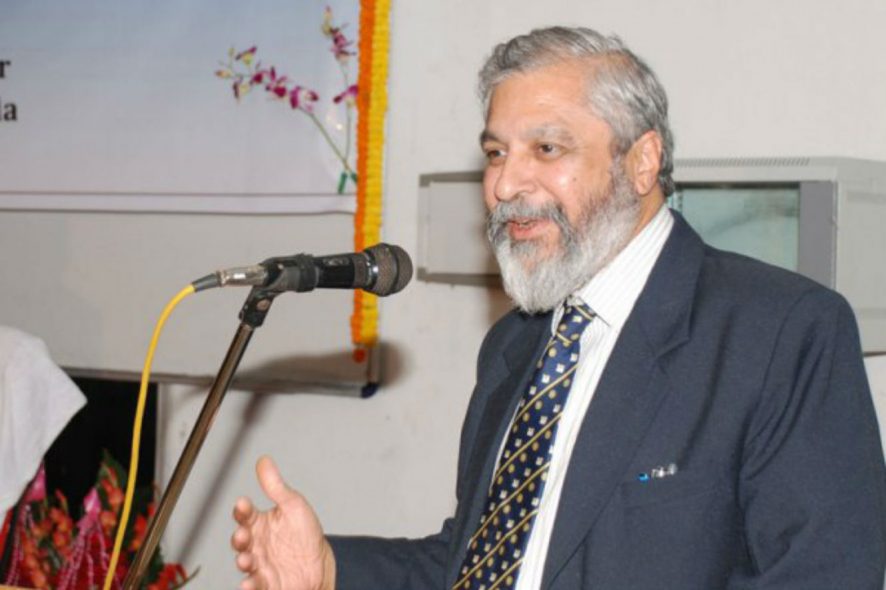Today marks the end of over six years long remarkable career of Justice Madan Bhimrao Lokur as a Supreme Court Judge. He will retire on 30 December 2018. But effectively, today is his last working day as the Supreme Court will go on Christmas and New Year holidays from 17-12-2018 to 01-01-2019 (and 15-16 December being Saturday and Sunday).
Born on 31 December 1953, Madan B. Lokur graduated in History (Honours) from prestigious St. Stephen’s College, Delhi University. After obtaining a degree in law from Delhi University’s Faculty of Law, he started practicing in Delhi High Court. After qualifying AoR examination in 1981, he enrolled as an Advocate-on-Record in the Supreme Court. He was designated as Senior Advocate in 1997. Before becoming Additional Solicitor General of India in 1998, he also served as Standing Counsel for Central Government from 1990 to 1996. Justice Lokur was appointed as an Additional Judge of Delhi High Court in 1999 before becoming a Permanent Judge in the same year. Justice Lokur served as Acting Chief Justice of Delhi High Court for a brief period in February-May 2010. He was appointed as Chief Justice of Gauhati High Court on 24 June 2010. He held that office till 14 November 2011 after which he served as Chief Justice of Andhra Pradesh High Court from 15 November 2011 to 3 June 2012. Justice Madan B. Lokur was elevated and appointed as Judge of the Supreme Court on 4 June 2012 and will retire on 30 December 2018.
Justice Lokur is known for his keen interest in juvenile justice and judicial reforms along with judicial education, legal aid and alternate dispute resolution. He has been a member of Mediation and Conciliation Project Committee and Judge-in-Charge of E-Committee of the Supreme Court. Justice Madan B. Lokur is the second senior most Judge in the Supreme Court whose bench has come to be popularly known as “social justice bench” over the years. The latest instance re-affirming the apt name given to Justice Lokur’s Bench is his yesterday’s judgment in Ashwani Kumar v. Union of India, (2019) 2 SCC 636, where he directed the Government to ensure that elderly people’s rights under Article 21 are properly enforced. In his opening statement, Justice Lokur reiterated his position in these terms: “Social justice in the Preamble of our Constitution has been given pride of place and for good reason since it is perhaps the most important and significant form of justice.”
In another judgment yesterday in Inhuman Conditions in 1382 Prisons, In re, (2019) 2 SCC 435, Justice Lokur considering the issue of condition of death convicts from a “humanitarian and compassionate” perspective, stated that “a prisoner is entitled to every creature comfort and facilities such as bed and pillow, opportunity to commerce with humankind, writing material, newspapers, books, meeting with family members etc.”
Also day before yesterday, he commuted 2 death sentences into life imprisonment including that in Rajendra Pralhadrao Wasnik v. State of Maharashtra, 2018 SCC OnLine SC 2799 where while delivering the judgment for the Court, Justice Lokur laid stress on reformative theory and opined, “probability (not possibility or improbability or impossibility) that a convict can be reformed and rehabilitated in society must be seriously and earnestly considered by the courts before awarding the death sentence.”
On Tuesday as well, in Nipun Saxena v. Union of India, 2018 SCC OnLine SC 2772, where Justice Lokur was on the Bench with Deepak Gupta, J., the Court extensively considered the problem of social ostracisation and harassment of victims of rape and sexual offences and noted that “Any litigant who enters the court feels intimidated by the atmosphere of the court. Children and women, especially those who have been subjected to sexual assault are virtually overwhelmed by the atmosphere in the courts. They are scared. They are so nervous that they, sometimes, are not even able to describe the nature of the crime accurately. When they are cross-examined in a hostile and intimidatory manner then the nervousness increases and the truth does not come out.” This in Court’s opinion makes it imperative that we should have courts which are child-friendly and trials which are victim friendly.
One may also remember that the same Bench in October last year held in Independent Thought v. Union of India, (2017) 10 SCC 800 that sexual intercourse with a minor wife is rape. Justice Lokur in his judgment stated, “It must be remembered that those days are long gone when a married woman or a married girl child could be treated as subordinate to her husband or at his beck and call or as his property. Constitutionally a female has equal rights as a male and no statute should be interpreted or understood to derogate from this position. If there is some theory that propounds such an unconstitutional myth, then that theory deserves to be completely demolished.”
Not only these but there are numerous decisions which time and again justify the stature and respect which Justice Madan B. Lokur commands in the legal and judicial fraternity. Also, one cannot help but remember the press conference held by the then four senior-most Judges (next to the Chief Justice) of the Supreme Court. Justice Lokur was also one among them who had come out in public for what he believed was necessary for transparency in the administration of judiciary.
And the saga of Justice Lokur’s legacy in the Highest Court of the Country comes to an end.
Image Courtesy: https://www.uttarpradesh.org







